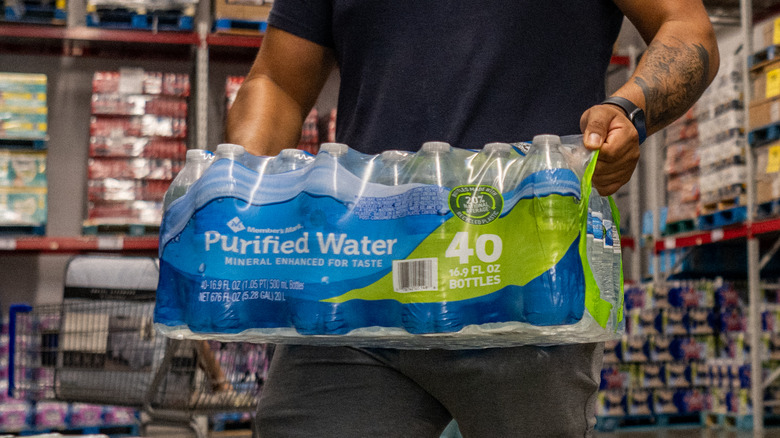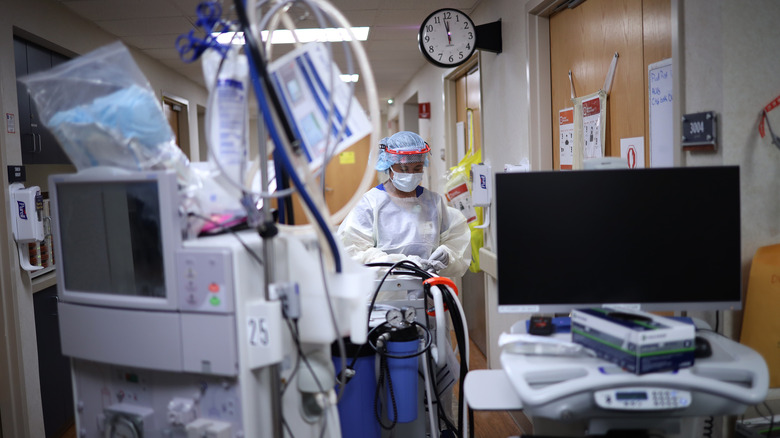Why You Should Avoid Water Loading When Diagnosed With Kidney Disease
If you were recently diagnosed with kidney disease, your doctor may have told you to avoid water loading. Water loading is when you drink a lot of water in a short period of time, usually more than four cups within an hour. Some people with kidney disease may have heard that drinking a lot of water at once can help cleanse your kidneys, but this is not true. While it's important to stay hydrated, especially when you have kidney disease, water loading can actually make your condition worse (via Livestrong). Water loading puts extra strain on your kidneys and can make them work harder than they need to. This can lead to further damage and even kidney failure.
Water loading can also cause you to retain fluid if you already have kidney disease, which can cause swelling (edema) and increase the risk of heart failure (via Mayo Clinic). If you have kidney disease, it's important to talk to your doctor about how much fluid you should be drinking each day and how to best stay hydrated.
What to know about kidney disease
Kidney disease, also known as chronic kidney disease, is a type of damage to or disease of the kidneys that will progress if left untreated. Kidney disease can cause problems with how the kidneys work and can lead to kidney failure (via Mayo Clinic). There are many different causes of kidney disease, including diabetes, high blood pressure, and problems with the urinary tract. Some people are born with kidney disease while others may develop it over time.
Symptoms of early-stage kidney disease may be hard to spot. However, as the disease progresses, symptoms may include fatigue, weakness, weight loss, decreased appetite, nausea, vomiting, and changes in urine output. If kidney disease is found early and treated, it may be possible to slow or stop its progression. Treatment options include lifestyle changes, such as exercise and a healthy diet, and medications. In some cases, dialysis or a kidney transplant may be needed. If you have any of the risk factors for kidney disease or are experiencing any symptoms, it's important to see your doctor so that the cause can be determined and treatment can be started if necessary. Early detection and treatment of kidney disease can help improve your chances of living a long and healthy life.


